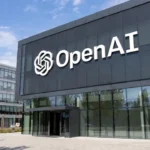Transportation services are pivotal in facilitating the movement of people and goods globally. The transportation industry is a vital component of the economy, encompassing various modes of transportation, including road, rail, air, sea, and multimodal systems. This analysis provides an in-depth overview of the current state of the transportation services market, key trends, major players, challenges, and prospects.
Market Overview
The global transportation services market is undergoing rapid growth and transformation driven by urbanization, globalization, technological advancements, and shifts in consumer behavior. Transportation services are critical for economic development, trade, tourism, and daily commutes. The market encompasses a wide range of services, including passenger transportation, freight and logistics, shared mobility, and transportation infrastructure development.
The Techgolly market analysis team estimates that the global transportation services market was valued at least USD 8.5 trillion in 2024 and is projected to reach USD 13.49 trillion by 2030. Growth will continue at a compound annual growth rate (CAGR) of 6%-8% from 2024 to 2030.
Efficient transportation services are essential for connecting markets, supporting supply chains, and facilitating seamless travel experiences. Population growth, urbanization, environmental concerns, government policies, and technological advancements influence the market. As demand for transportation services continues to rise, the industry is embracing innovation to meet the evolving needs of consumers and businesses.
Key Market Trends
The transportation services market is characterized by several key trends shaping its growth and evolution.
Shift Towards Sustainable Transportation
There is a growing emphasis on sustainability and environmentally friendly transportation solutions. Governments, consumers, and businesses increasingly focus on reducing carbon emissions and promoting greener transportation options. Electric vehicles, public transportation enhancements, cycling infrastructure, and eco-friendly fuels are gaining traction, contributing to a more sustainable transportation landscape.
Integration of Mobility as a Service (MaaS)
Mobility as a Service (MaaS) is an emerging trend that integrates various transportation services into a single accessible platform. The services provide users with a seamless experience, allowing them to plan, book, and pay for multiple transportation options, such as buses, trains, rideshares, and bikes, through a single application. This trend promotes convenience and efficiency and shifts toward a multimodal transportation approach.
Digital Transformation and Smart Transportation
The integration of digital technologies and data-driven solutions is revolutionizing transportation. Smart transportation systems leverage the Internet of Things (IoT), Artificial Intelligence (AI), data analytics, and automation to optimize traffic management, enhance safety, improve connectivity, and reduce congestion. These technologies are key to the development of intelligent transportation networks.
Focus on Last-Mile Delivery Solutions
Last-mile delivery is a significant focus area, especially with the rise of e-commerce. Efficient and sustainable last-mile delivery solutions are essential to meeting customer expectations for prompt and reliable service. Innovations such as autonomous delivery vehicles, drones, and optimized route planning are transforming the last leg of the supply chain.
Challenges
The transportation services market faces various challenges that need to be addressed to ensure sustainable growth and efficiency.
Infrastructure Development and Maintenance
One significant challenge is the need for continuous investment in transportation infrastructure. Developing and maintaining roads, railways, airports, ports, and transit systems to meet growing demand and technological advancements is crucial to the functioning of a transportation network.
Environmental Impact
The transportation industry is a significant contributor to environmental pollution and climate change. Reducing its environmental impact requires transitioning to cleaner fuels, adopting electric vehicles, improving fuel efficiency, and promoting sustainable transportation alternatives.
Regulatory Compliance and Safety
Compliance with diverse and evolving regulations across regions is a complex challenge for transportation services. Ensuring safety standards and regulatory compliance, addressing the specific requirements of each mode of transportation, and maintaining operational efficiency are crucial for the industry.
Urban Congestion and Traffic Management
Urban congestion is a persistent challenge affecting both people and goods movement. Effective traffic management, congestion pricing, and the promotion of alternative transportation options are essential strategies for alleviating urban congestion and ensuring smooth city traffic flow.
Future Outlook
The transportation services market is set for significant advancements, driven by technological innovations, sustainability initiatives, and the need for seamless mobility. Key future developments include.
Autonomous and Connected Vehicles
Integrating autonomous and connected vehicles will revolutionize transportation, enhancing safety, reducing congestion, and optimizing traffic flow. Autonomous vehicles have the potential to transform urban mobility and make transportation more efficient and accessible.
Hyperloop and High-Speed Rail
Hyperloop technology and high-speed rail systems are promising advancements that offer rapid and sustainable transportation. These technologies have the potential to significantly reduce travel times, enabling faster and more efficient connections between cities and regions.
Electric Aviation
Electric aviation is an emerging trend aimed at reducing the carbon footprint of air travel. Advancements in electric aircraft technology and infrastructure will make electric aircraft a viable and environmentally friendly mode of air transportation.
Conclusion
The transportation services market plays a vital role in shaping the global economy and improving the quality of life. Addressing challenges and embracing innovation will be pivotal in realizing the full potential of transportation services. The market trajectory will be defined by how the industry navigates these challenges and leverages emerging technologies to create a more efficient, sustainable, and interconnected transportation ecosystem.





